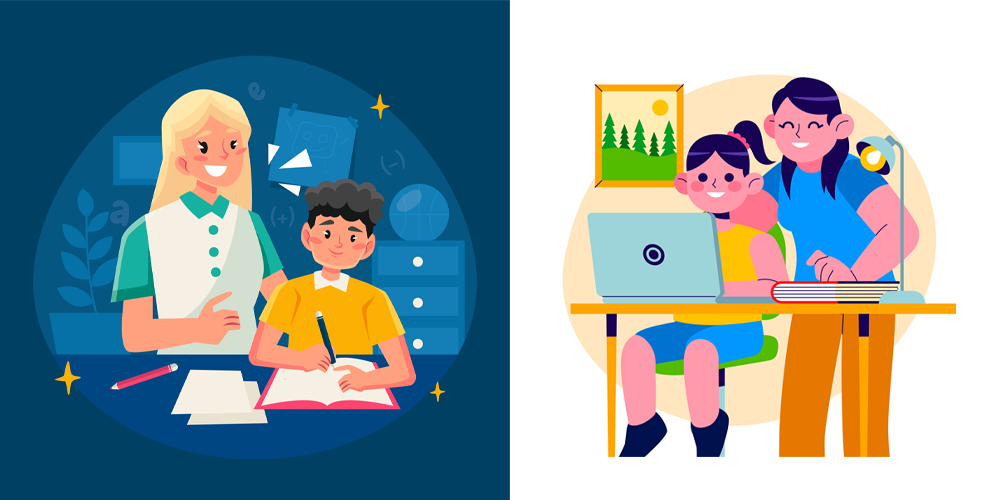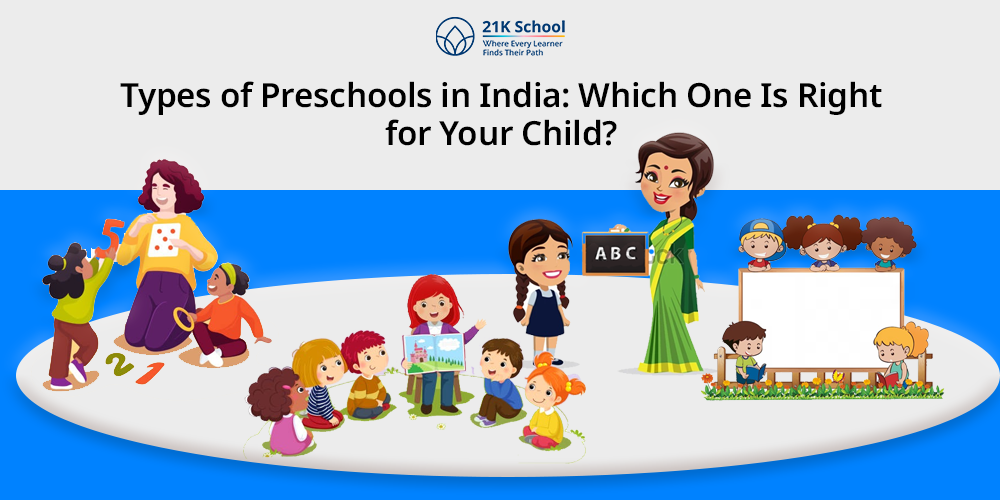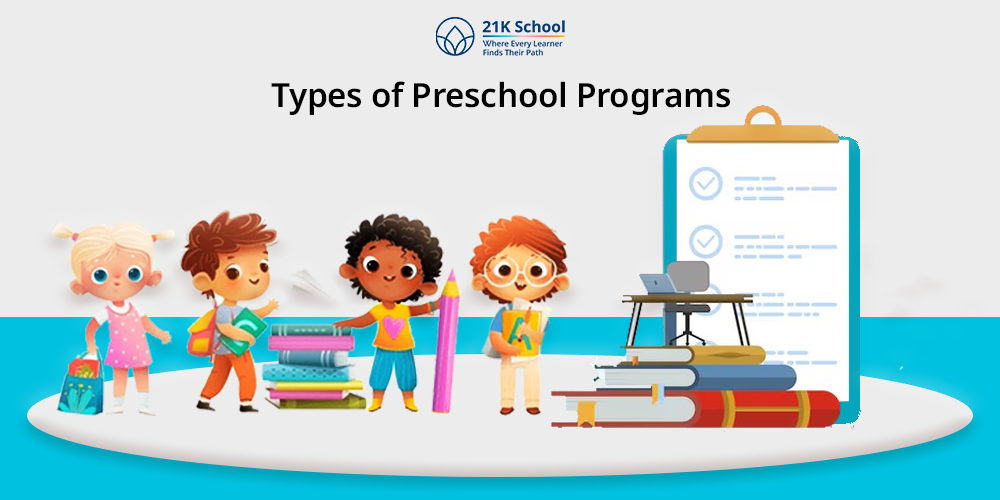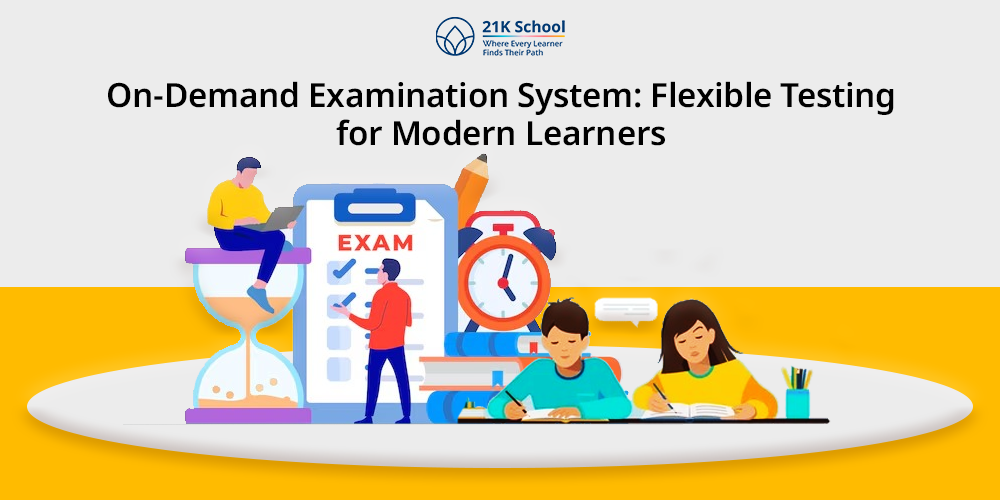
Homeschooling or traditional schooling, which is better?
That last decade has seen a huge debate going between homeschooling and traditional schooling has gained existence and immense importance as parents increasingly seek the best education model for their children.
Homeschooling is also known as alternative schooling.
Earlier it wasn’t the case, people believed in traditional schooling much more than any other forms. As traditional schooling has been the norm for decades.
While homeschooling is an alternative approach to education that caters to personalized learning.
This personalised learning promotes inclusivity and peer to peer collaboration.
This article explores both schooling methods, their advantages and disadvantages, and provides a comprehensive comparison to help parents make an informed decision.
Cause when it’s about a child’s future, better check twice!
Here’s a beginners guide to homeschooling. But before we get into the details:
Let’s start basic, by knowing
Contents
What is Homeschooling?
Homeschooling is an educational approach where parents or guardians teach their students with full responsibility, rather than sending them to traditional schools or formal institutions.
One of the most frequently asked questions among parents is, “Is Homeschooling legal in India?”
Honestly, homeschooled children learn things their way, it’s a flexible approach that allows flexibility in curriculum, teaching methods and even the pace of students learning.
The journey of students when homeschooled, meets their respective needs and interests, making this model of education tailored and convenient. .
Accessing homeschooling progress can be very unusual. But, there are some unconventional methods to assess a homeschooled student’s progress.
There are many way of explaining this, not so conventional form of education but the key features of homeschooling include:
- Parents choose or design the curriculum as per the needs and interest of their children. Homeschooling curriculum is very different from that of traditional schooling. .
- Education often integrates real-world experiences, thus it is more engaging and stays with the kid for a longer period of time — we can conclude this by saying it fosters improved knowledge retention and better understanding .
- It promotes one-on-one teaching — no caps, just personalised especially for one. It’s an especially tailored experience for children to learn from, ensuring that they get the best of the moment.
- Learning environments can vary, from structured routines to unschooling — in both the cases, students get to choose the time, way and subject to read from. Providing them with a complete freedom of learning.
The story to homeschooling doesn’t just ends here, it’s a fun learning experience, but considering the long history of traditional schooling, it is equally important to know:
What is Traditional Schooling?
Traditional schooling refers to the conventional schooling system, where children attend an established school or institutions: such as public or private schools.
It is one of the most standard forms of schooling, with standardised and rigid curriculum, tight schedules and timetable.
The entire schooling process is very systematic and regulated by education authorities, ensuring uniformity in the learning process and the objective for the students.
Though it is conventional and has been there for more than centuries, it holds a significance importance in our lives, some of the key features of traditional schooling are :
- Fixed curriculum— mostly rigid and scheduled to meet the timetable deadline, set by educational boards like: State Board, CBSE, ICSE and many more.
- Classes are not just led but controlled by certified teachers, who are specially trained to take care of teaching environments and children in general.
- Structured schedules and routines — it is systematic, strategized and scheduled to meet the needs of learners in uniformity with the given time frame .
- Peer interactions and group learning – with the traditional learning environment the major advantage that backs up is the connection students build in the course of learning, it is valuable and important for personal growth and social development .
Factors to Consider
Imagine if you are a parent, who has to make the decision for your child:
What factors will you consider before comparing the two most relevant yet different educational approaches for your child.
Honestly,
Choosing between homeschooling and traditional schooling depends on various factors, such as :
- Child’s Learning Style : Some children thrive in personalized settings, while others benefit from group interactions. It completely depends on the need and interest of the learner and the decision completely depends on the fact that what best suits the child.
- Parent’s Availability : Homeschooling requires significant time and effort from parents, in case both the parents are working (usually seen in modern times) it is practically impossible to consider homeschooling. Homeschooling needs undivided attention from parents.
- Socialization Opportunities : Traditional schooling sets up an opportunity for learners to interact daily and grow alongside their peers which contributes to their social development and boosts their confidence and interpersonal skills. While in homeschooling parents constantly seek for social opportunities.
- Academic Goals : The entire education is based on that one academic goal that is to choose between college or some personal skill based learning but at the end of the day the future awaits: and all the small and important decisions lead us there.
- Financial Implications : homeschooling looks economical, but to meet the standard from the competitive world parents require to invest in education material and resources. While in traditional schooling all the charges are included in the tuition fees and most of it that one needs to pay is the transportation cost. But homeschooling on a budget is also a concept that can be implied and looked upon, while considering homeschooling.
- Flexibility Needs : homeschooling offers more flexibility as compared to traditional schools, in terms of curriculum, assessment and even schedules.
For schedules and better understanding of how to create one for their children: refer to the blog which talks in detail about : Tips for creating homeschooling schedules.
Comparison Between Homeschooling and Traditional Schooling
| Aspect | Homeschooling | Traditional Schooling |
| Curriculum | Customizable and tailored to the child’s interests. | Standardized curriculum set by education boards. |
| Teaching Style | One-on-one or small group learning. | Group-based learning in a classroom setting. |
| Socialization | Limited, needs extra effort for peer interaction. | Daily interaction with peers in various settings. |
| Flexibility | High, allowing adjustments to schedules and topics. | Low, follows a fixed schedule and curriculum. |
| Parental Involvement | Parent involvement is High, parents act as educators and facilitators.So, what are the best things parents need to know about homeschooling? | Here, parent involvement is Minimal, educators are responsible for teaching. |
| Cost | Variable, depending on resources and programs used. | Tuition fees (if private) or minimal (public). |
| Assessment Methods | Personalized and non-traditional methods. | Standardized tests and grading systems. |
Advantages and Disadvantages of Homeschooling vs. Traditional Schooling
| Category | Advantages of Homeschooling | Disadvantages of Homeschooling | Advantages of Traditional Schooling | Disadvantages of Traditional Schooling |
| Learning Approach | Personalized Education: Tailored to your child’s unique pace and learning style. | Potential Gaps in Knowledge: Risk of missing essential topics if not planned well. | Structured Learning Environment: Provides discipline and routine for consistent growth. | Standardized Curriculum: May not cater to individual learning preferences. |
| Flexibility | Flexibility: Freedom to choose study hours, subjects, and teaching methods. | Time-Consuming for Parents: Requires significant effort and dedication. | Diverse Extracurricular Opportunities: Access to sports, arts, and clubs. | Rigid Schedules: Fixed routines leave little room for flexibility. |
| Social Interaction | Focus on Interests: Allows extra time for hobbies and passions. | Limited Peer Interaction: Social opportunities need to be actively sought out. | Social Development: Regular interactions with peers build teamwork and communication skills. | Bullying and Peer Pressure: Exposure to potential negative social elements. |
| Family Dynamics | Stronger Family Bonds: Close interactions strengthen relationships with parents and siblings. | Resource-Intensive: Costs for books, tutors, and materials can add up. | Access to Professional Teachers: Trained educators ensure subject expertise. | Limited Individual Attention: Teachers often handle large class sizes. |
| Cost & Resources | Cost Control: Can be economical with free or low-cost resources. | Planning Burden: Parents must research and design the curriculum themselves. | Established Resources: Schools provide books, labs, and extracurricular facilities. | Additional Costs: Private schools or extracurriculars may increase expenses. |
All these disadvantages can be solved, only approach to it can be applying it wisely; but is it really possible to resolve the disadvantages of homeschooling?
Conclusion
The decision between homeschooling and traditional schooling ultimately depends on what suits the child and the family best.
Both the schooling methodologies have their own pros and cons : homeschooling offers personalised learning and flexibility.
But it requires a substantial amount of parental involvement. Traditional schooling provides a structured environment and ample opportunities for social interaction but on the contrary it lacks individuality and personalised attention that one gets in homeschooling.
It’s very important to keep all the factors in mind and then weigh the advantages and disadvantages of each option based on their child’s learning style, family dynamics, and long-term goals.
Both methods have the potential to provide a quality education if implemented thoughtfully.
Furthermore one can also refer to a blog that talks about most frequently asked questions about homeschooling in detail.
We at 21K School offer a higher degree of control of oversight of children’s education to their parents. You’re homeschooling for your ward’s comfort – 21K School students don’t have to leave their homes for quality education.



